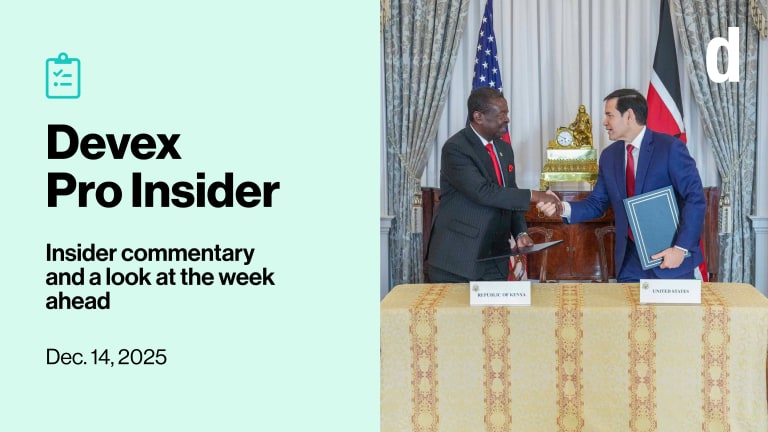U.S. President Joe Biden’s administration released a new global development strategy this week which aims to “codify” the approach the White House has taken over the last four years.
Biden took office in January 2021. With just over six weeks until a U.S. election that will decide who succeeds Biden as president, experts told Devex the strategy is less an action plan than an appeal for continuity, while one senior official called it an “opportunity missed.”
In 20 pages, the Biden administration breaks down its approach to development into five pillars: sustainable economic growth and infrastructure; health, food security, and human capital; decarbonizing the economy and climate resilience; democracy, human rights, and governance; and humanitarian assistance.
This story is forDevex Promembers
Unlock this story now with a 15-day free trial of Devex Pro.
With a Devex Pro subscription you'll get access to deeper analysis and exclusive insights from our reporters and analysts.
Start my free trialRequest a group subscription








